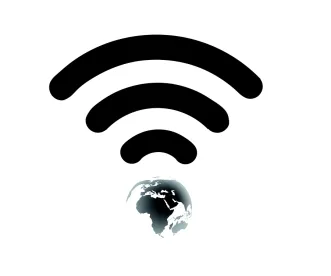Government Shutdown
A partial federal shutdown went into effect at midnight last Friday when the Senate was unable to agree on a short-term funding measure. All federal employees that are considered “essential” will continue to work as normal, and some entire agencies have announced that they will continue normal operations for the time being. The FCC released a statement announcing that it will remain open and pay staff at least through Friday, January 26. This afternoon, the Senate passed a bill that would end the shutdown and fund the government through February 8, 2018. The House is likely to vote in favor of the bill later today.
Comments Filed on Overlashing Pole Attachments
Utility pole owners and communications attachers took opposite positions in FCC filings last week regarding the practice of “overlashing” existing attachments to create additional capacity. The “Utility Coalition on Overlashing” composed of K&H clients Exelon, FirstEnergy, Hawaiian Electric, Puget Sound Energy and The AES Corporation,” highlighted safety and reliability issues and called for advance permitting of overlashing. The attachers, on the other hand, claim utility safety and reliability concerns are overblown and some are calling for no advance notice at all. Reply Comments are due February 16.
FCC to investigate False Missile Alert in Hawaii
As widely reported, on January 13, 2018, Hawaii received a false ballistic missile notification through the state’s wireless emergency alert system, over which the FCC has jurisdiction. FCC Chairman Ajit Pai has promised a full investigation and that investigation is already underway. The House Homeland Security Committee’s Subcommittee on Emergency Preparedness, Response, and Communications has scheduled a hearing for February 6, 2018 to discuss the current state of emergency alerts and warnings.
FirstNet Update
The Northern Mariana Islands announced it will opt-in to FirstNet. With this decision, all 50 States, five U.S. Territories and the District of Columbia have accepted the FirstNet/AT&T plan for construction and maintenance of the Radio Access Network portion of the Nationwide Public Safety Broadband Network within their respective jurisdictions. The NPSBN will proceed pursuant to terms of a contract between AT&T and FirstNet.
Chairman Pai Announces Releases Drafts of Circulation Items on Broadband Deployment
Last week, Chairman Pai circulated a draft of the 2018 Broadband Deployment Report. According to the Fact Sheet issued by the Chairman’s Office, the Report concludes that mobile broadband is not a substitute for fixed broadband deployment, fixed and mobile broadband will continue to be evaluated separately, and the fixed broadband benchmark speed remains 25/3 Mbps. Another draft order circulated by the Chairman’s office looks to provide over $500 million in additional funding to the FCC’s high-cost universal service fund for rural rate of return carriers. The order includes rules to prevent waste, fraud and abuse in this program.
“Dig Once” Legislation
Lawmakers have introduced a bi-partisan bill called the Broadband Conduit Deployment Act of 2018, which would create a “dig once” policy for federal roads. The proposed bill mandates the installation of fiber conduits for covered highway construction projects. This policy would require that covered construction projects on new or existing federal roads include the installation of plastic pipes for fiber cables. The policy is referred to as “dig once” because it aims to eliminate the need to dig up roads to deploy broadband infrastructure. By installing the fiber conduits during construction, broadband providers can easily install fiber optic cables at a low cost whether or not installed immediately or in the future. Legislation promoting the bi-partisan “dig once” policy has been introduced repeatedly in Congress since 2009.
Hurricane Maria Report
The FCC has released the Communications Status Report for Areas Impacted by Hurricane Maria. The FCC’s Disaster Information Reporting System has been activated for all counties in Puerto Rico and the U.S. Virgin Islands, but outage information is not complete. The status for the Public Safety Answering Points (PSAPs) in Puerto Rico and 9-1-1 Call Centers in the U.S. Virgin Islands are fully operational. Wireless Services continue to be restored with only 9.2% of cell sites out of service in Puerto Rico and 12.0% of cell sites out of service for the U.S. Virgin Islands. Contrarily, cable systems and wireline remain largely unavailable because commercial power has yet to be restored. The FCC will continue to track all progress until Puerto Rico and the U.S. Virgin Islands communication systems are fully restored.







 />i
/>i

